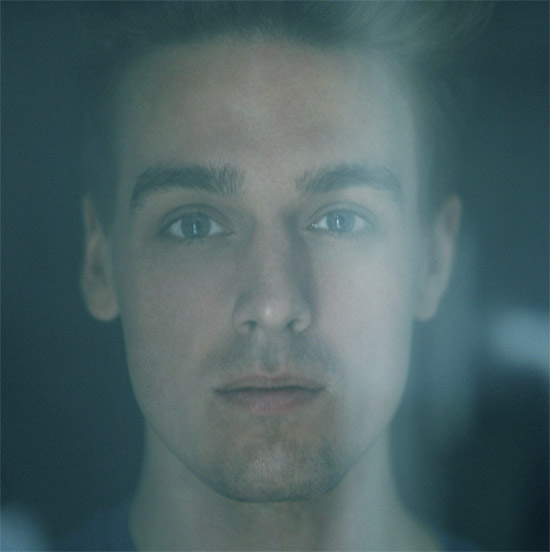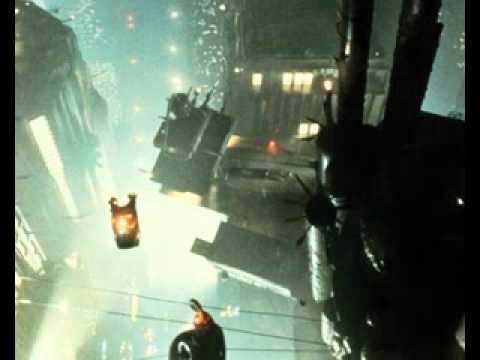Of late there’s been a growing revival in the use of synth textures that sound as though they could potentially have been generated any time between the eighties and now. They’re there in the music of people like Laurel Halo and Oneohtrix Point Never, present in Leyland Kirby’s recent Intrigue & Stuff 12”s, and with the release of his debut album Severant they have laid siege to Jamie Teasdale’s music under the name Kuedo.
Though Teasdale cut his teeth as one half of dubstep provocateurs Vex’d – who added to the nascent genre’s immersive cityscapes the aggression and energy of techstep drum ‘n’ bass and industrial noise – his subsequent music as Jamie Vex’d and then as Kuedo has taken progressive steps away from that tight sound palette. With each subsequent release the distortion has ebbed further and melody has surged to the fore. Severant now feels like the natural result of a process of evolution that had begun even by the time of the release of Vex’d’s 2005 debut album Degenerate. It takes an intensely focused approach: towering, Vangelis-esque synth textures, elegiac melodies and rattling percussion influenced by footwork and modern hip-hop production of the Lex Luger/Shawty Redd school. The result is an unusually coherent closed system of a record, elegant, energetic and woozily romantic at once. With it, Teasdale has severed his connections to dubstep almost entirely, and drifted away on a different, entirely dreamier tangent.
There’s been a tendency among commentators to pin down Severant as ‘retrofuturistic’, or ‘nostalgic’, connected to the sort of grand, failed visions of the 21st century envisaged in Alvin Toffler’s 1970 tome Future Shock. But despite Teasdale’s music sounding texturally connected to the past, along with Laurel Halo and Dan Lopatin it’s thematically very different. The contradictory sensations of speed and stillness it evokes are distinctly web-age in nature, and the sorts of emotions it provokes would unlikely have been the same had it been written during the pre-internet eighties. Though there are a great number of tired synth revivalists out there, Severant establishes Kuedo as doing something entirely more modern. We spoke to him to find out more.
As soon as your solo material started coming out, it felt like a shift – it more colourful and emotive, compared to Vex’d. Do you think that was your personality coming out more in your music?
What you want to be doing, and what the right thing to do is, is always changing, along with the context of the time and the place. At the time, yes. But that changes year to year. Certainly it was more relevant, it was more connected to me, that’s for sure. And it certainly had more connection to my listening history. Whereas the Vex’d stuff was was a collaboration between me and another person. It was an experimental project for us, so we were exploring a particular territory. And it proved to be quite a fleeting listening place for me, I was into it at that point and it didn’t hang around very long. Vex’d was just a cool, interesting phase, do you know what I mean?
There’s also a functional aspect to it as well, which was that I was more the technical guy in Vex’d, whereas a lot of the musical language came from Roly’s side. And I don’t mean to negate my creative input, because there’s plenty of tracks that I wrote entirely myself and engineered them all, but I think some of the characteristics, musically, came from Roly, and they’re continued in his new work. It’s not something I worry about particularly. Vex’d doesn’t really come into my thinking about what I’m doing.
To be fair, I didn’t want to dwell on it too long because I’m a lot more interested in what you’re doing now. I don’t think it needs to be a relevant part of the discussion around this record.
You’re the first person who’s said that and it’s really good to hear. It was only through convenience that I used Jamie Vex’d [as a name], because that’s what people were referring to my work as. There were more difficulties in it than anything else, because you get a set of expectations.
There’s definitely a different approach on Severant compared to [earlier EPs] Dream Sequence or In System Travel – at what point did that start to morph? Was there a conscious choice you made to work in a different direction?
It was the outcome of deliberately reassessing and readjusting a process. The working process was not radically different, I was using similar tools, but it was consciously different. It was tailored for this particular album and the aims associated with it. There are a lot of reasons why I chose to work this way, as there would be for anyone deciding which way to work. I guess the morph comes from the fact that I consciously chose a way to work, and thought about it, whereas previously I’d stumbled into a work process. And I wanted to be more conscious of my intentions, of the meaning that I was going to put into the music, and find a way to adjust the process so I could hit those targets more accurately.
The approach you’ve taken seems quite minimalist, in the sense that you’re not using that many separate elements, but fully exploring a certain palette. Is that true, and was that part of the conscious choice – ‘I want to fully explore this‘?
Yes. There were a few reasons behind that. One was trying to find a way to curtail my own perfectionism, which can lead to a non-ending period of working on a piece. It can also lead to adding lots of layers and parts that might really be superfluous. There’s a practicality to that, to write tracks quickly in order to capture the real energy and intention behind them. It’s more defined by the inspiration you have for a particular idea, which will at some point become less clear. If you work past that point you start to obscure the meaning rather than add to it. And kill the track.
There was another reason why – it became interesting in itself, working with a minimalist set of tools, and I actually tried to write the tracks to be minimal within the computer themselves. To have a kind of aesthetic minimalism while working in the machine, in the hope that it would transfer to the music somewhat. I wanted it to be easy to work with, to have a maximum of a handful of different channels, so that it would be an open place to work within the computer. It would be very fluid and I could work very quickly in it without getting caught up by the computer itself.
In terms of synths you could use at this point, the options seem almost limitless. So unless you make a choice, I can imagine it being really easy to get lost.
There’s totally that, and there’s a lot to be said for becoming intimately familiar with just a few different tools, and to really know what they’re capable of and what their characters are.
One thing I really like about the record is the approach you’ve taken with drums, the way they slip between different subdivisions of the bar.
That was the outcome of the process. I chose to control the drum pattern, in real time, by hand, so I preprogrammed different patterns and as the track played I would change the patterns by hand. That mixture between programming and hands on recording to me was a big part of producing it. It doesn’t sound like a dub record and it’s not massively influenced by dub production, but there was a slight element of that working methodology: the live recording of a mix.
Its interesting that you say that – the lurching hi-hats sound live. There’s a sense of humanity, it sounds like there’s a person behind them.
That’s wicked, because that was entirely the thing that I wanted to capture – machines working, with a human at play behind them. And I wanted the listener to be able to hear the human controlling these machines. I didn’t want it to sound like machine music at all, I wanted the machines to sound like they were being used in an expression sense, rather than dominating the expression. I wanted there to be a roughness – something you might not intentionally choose to do, but which would happen if you just pressed record and started moving your hands and fingers in real time, changing stuff as you feel to in the moment.
Did you enjoy it as an approach?
Yes. I enjoyed it a lot. I didn’t intend it to be a working method to stick to for any longer than it feels inspiring, I don’t know how long I’ll be doing it for, but it was great.
You were already shifting away from a distinctly UK, dubstep, London kind of sounds when the last couple of 12"s came out, and I guess as a result of that this album sounds like it’s taken a definite leap into territory that isn’t anchored by one specific genre, idea or location.
I think anchored is a good term to use, because I kind of cast that anchor off quite some years ago. If it is connected to [dubstep], it’s not intentionally trying to be. Any connection there is an incidental result of my musical history, but it’s not meant to work in that scene. I think it is becoming more and more divorced from that, it’s taking up less of my listening time, that music, that world. Having said that, I might one day return to that, if it’s inspiring. But I think the thing you really should be doing as an artist is following where your own inspiration is.
I think by taking the approach you have done on this record, you’ve allowed it to operate separately from any context that might previously have been placed on it.
Good. It’s this whole issue of being in scenes or not, and I think it’s great to be part of them while they’re inspiring to you, while you can really do something within that form. But once it gets to the point where it’s restricting your inspiration, and your expression, then your value within that becomes decreased. You’re doing less for that scene by trying to stick with it. Also, you can leave all the scene stuff and all those frameworks and not stick to them if you really have a purpose for doing so. If you know why you’re making music and you know what your meaning is, then you will transcend those. You need to be sure what you’re saying if you’re doing to detach from all that stuff, because without those groundings, it can be quite a diffuse area to find yourself in.
On the other side of what you’re saying, you can get too bogged down in a scene-based context as well. Getting too caught up in something can be creatively quite risky.
There’s so many strange relationships that people have with scenes and ideas of authenticity, which become really sticky to certain people, who then feel they can’t leave a certain genre and still remain authentic. So that becomes a stumbling block. Their own ideas become built around a single genre, so if they depart from that their identity becomes less clear. And also on a personal level – when I was into jungle as a kid, my sense of self depended on jungle. I was so into that music, I remember Roly said in an interview that he kind of hated people who weren’t into jungle! [laughs]
That’s part of being an overzealous teenager, but I think there’s some truth in there, it becomes a prism through which to see people. I don’t know if that’s a helpful thing. And then there’s that question of ‘is that really authentic’, if you’re changing your identity, your sense of self, to fit a particular genre, scene or group of people. I think that was the switch in me in the past few years – it’s to really try and find an authentic voice, and to have real meaning behind it. I’m not saying that I get that stuff across, and I’m not saying that it’s any good, but that’s what I was trying to do. And actually, within that aim, sticking to one particular genre would just be less effective.
You mention jungle – that was one thing I was going to mention. Not that your record sounds at all influenced by jungle, but there are a few people around at the minute – Laurel Halo’s a good example – who are making music that’s actually quite fast, but the more ambient or smooth textures that overlay it make it feel incredibly relaxing. It’s this combination of speed and stillness, which is something ambient jungle did very well too. I feel like your music fits that very well – the use of very fast tempos for the rhythms are offset by far more relaxing approaches to melody.
I can’t say I was influenced by jungle on this record. They [the beats] come from footwork and from a certain kind of recent hip-hop, rap production style. And I listen to a lot of rap instrumentals, actually. I really enjoy the vocal versions but I have a great love for the way that they’re produced. They have that speed of the hi-hats, and same with the footwork stuff, it can put you in an interesting mental state. It’s hard to capture in words.
I feel like a lot of footwork is quite psychedelic.
Yeah, there is something about those musics that I really enjoy that aspect of. And the thing I found interesting, and worth pursuing when I tried it, was mixing that rhythmic base with more gently emotive synth melody top lines. There’s a weird juxtaposition between the two that I find worth chasing. The drum machine sounds sound very mechanical, very electronic – so in a sense they sound quite inhuman. But the melodies have a sentiment in them, and they’re often quite roughly played, I’m not a great keyboard player. So there’s that mix of elements as well.
They feel expressive, like there’s a person playing them.
Some of them are run by arpeggiators and stuff like that, but the ones that aren’t were played in by hand, generally within the first take or two.
People are quite quick to pin down this ‘retrofuturist’ thing down on people who are using older sounding synths, but actually that’s not necessarily very relevant. There’s a comparison I feel, between you and Laurel Halo, in that both your music feels really information agey. I think it’s something to do with the speed and intensity of information transfer, compared with the reality of being sat down on your backside in front of a computer.
I’m so pleased you said that. Because it’s not nostalgic at all to me, and it’s not trying to paint pictures of past decades. They’re just musical devices that create certain senses – a basic synth form has an effect on people. And I don’t think it goes out of phase or relevance a few years after its first invention. I think it’s more likely that we have hang ups about it first being popularised, then we don’t use it for a few years after because we want to get away from those cultural associations, then once we’re free of them we can re-explore them.
I think there’s a difference between a lot of synth music that’s being made now and the music that was being made in the past. It’s often thematically very different.
[Pauses]. Yeah. The theme thing could be… Actually, the big issue is a complicated one. I wonder if one of the reasons that people think this sounds like it’s nostalgic – where to me internally, as the guy who made it, it wasn’t and it isn’t – is because it has quite an overt, romantic futurism to it. Which hasn’t had much currency for a few decades. The last time people were really into this idea of a coming change in the future was that time in the eighties, and it saturated pop culture, this eager futurism. That’s how I feel about things. I don’t think it’s relegated to a particular decade, I think that sense of wonder at the future and at new technology, and a sense of wonderment at space, star images, etc, it’s all intertwined. And I think it’s intertwined with this clumsy word we use – you know, ‘the future’, or ‘futuristic’.
The futurism of the eighties, films from around that time, still felt very concerned with us conquering the physical laws of the world. Flying cars, space bases, all that stuff. But actually they didn’t really predict telecommunications to advance in the way they have done. I mean, when I first got a mobile, I’d never have had the slightest idea that in a decade’s time you’d have this iPhone which did everything. They never figured that out.
[Laughs] That’s it. In some senses it’s less visually spectacular, without the runways of flying cars across the sky or whatever, but it’s in some ways more fucking radical having cloud computing. This kind of interconnectedness, is way more radical than people could ever dream up. The sense that the future isn’t coming is just false, and the sense that we’re already there keeps on being proven to be a fallacy, because it keeps on coming. What we don’t get so often is this sense of ‘What the fuck, everything’s suddenly different’, because it comes in stages, but there are those points where you suddenly appreciate where we are, and you do get that sense of wonder.
Severant is released on October 17th through Planet Mu




